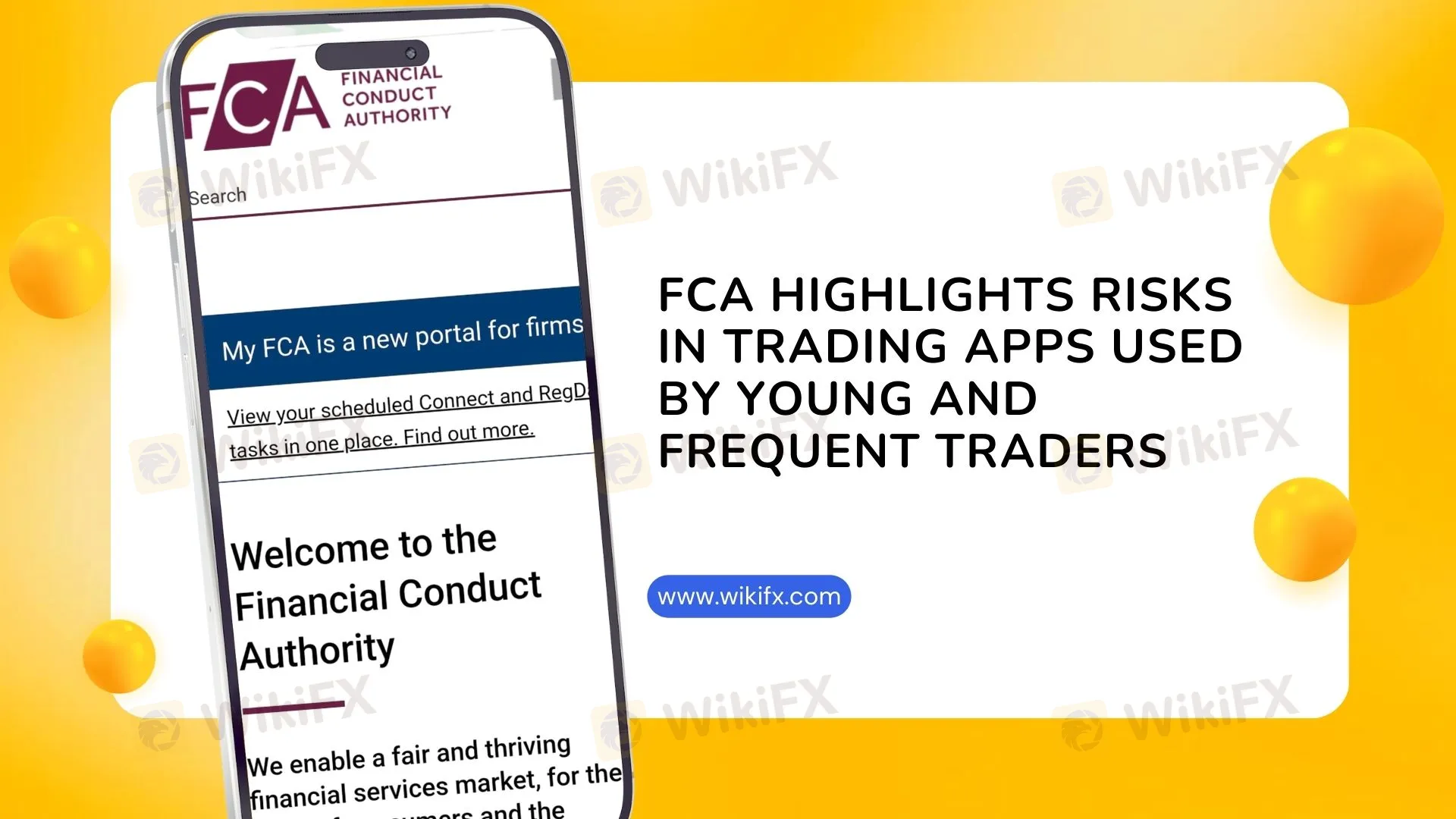简体中文
繁體中文
English
Pусский
日本語
ภาษาไทย
Tiếng Việt
Bahasa Indonesia
Español
हिन्दी
Filippiiniläinen
Français
Deutsch
Português
Türkçe
한국어
العربية
FCA Highlights Risks in Trading Apps Used by Young and Frequent Traders
Abstract:A new FCA report finds that trading app features may drive excessive trading among younger users, with some platforms lacking adequate checks for high-risk products.

The UK Financial Conduct Authority (FCA) has released a multi-firm review and behavioral research highlighting key risks associated with trading apps, particularly those used by young and frequent traders.
Key Findings on Business Models and Engagement Practices
The review covered 12 trading app providers, revealing diverse business models. Some acted as introducers, directing users to affiliated platforms. Revenue streams included commission, subscription fees, and interest from idle balances. FCA noted that some firms lacked sufficient oversight of pricing fairness and investor value.
Firms employed digital engagement practices (DEPs), such as push notifications and gamified incentives. While all firms showed some awareness of the risks, FCA cautioned that some app designs may unintentionally drive higher trade frequency and risk exposure.
Target Market and Product Suitability Concerns
The FCA observed that several apps did not adequately define their target customer profiles. In some cases, complex or high-risk products were accessible to users without sufficient knowledge or experience. Appropriateness testing was found to be weak in certain apps, allowing unqualified investors to access unsuitable offerings.
Behavioral Research Shows Demographic Impact
FCA's behavioral study indicated that trading apps with more gamified elements attracted users with lower income and higher trade frequency. These users also tended to have worse investment outcomes, raising questions about how app design may be linked to real-world financial results.
Conclusion
The FCA has not mandated specific changes but encourages firms to examine their app designs, especially concerning user engagement features, pricing transparency, and risk control procedures. With trading apps rapidly growing in popularity, especially among younger demographics, proper oversight remains critical to ensuring responsible investment access.
Disclaimer:
The views in this article only represent the author's personal views, and do not constitute investment advice on this platform. This platform does not guarantee the accuracy, completeness and timeliness of the information in the article, and will not be liable for any loss caused by the use of or reliance on the information in the article.
Read more

Hong Kong Warns of CBEX Group Fraud Amid Nigerian Outrage
Hong Kong's 2024 alert revealed CBEX Group's fraudulent activities, misleading investors in Nigeria and beyond. Many face significant financial losses and withdrawal issues.

AMF and ACPR Warn Against 23 Unauthorized Forex and Crypto Platforms
French regulators have flagged 23 new websites for offering unauthorized Forex and crypto-derivative services.These platforms, which lack the necessary licenses, continue to target local investors with aggressive marketing and unrealistic profit promises. Authorities warn that many of these sites use misleading branding and domain names to appear credible.

Phishing Goes Vocal: Binance Warns of Fake Support Phone Scams
Binance introduces SMS-based security codes as scammers shift tactics from links to phone call traps.

Norfolk Police Warn About Investment Scams: Losses Total $143K
Norfolk OPP urges caution after two residents lost $143K in online trading and crypto scams. Protect yourself from investment fraud.
WikiFX Broker
Latest News
ICM.com Secures UAE License, Boosts Middle East Expansion
Navigating the Dollar’s Fall: Investor Strategies Unveiled
WikiFX "World Elite Trading Championship" Concludes Successfully
Engineer Defrauded of RM156,000 in ‘Perniagaan Bos’ Investment Scam
Cracking the RM3.17 Billion MBI Scam: 8 Arrested, Including 4 Datuks
US stock markets rise on Trump tariff rollback
Singapore Authorities Warn Public of OneMotoring Phishing Scam, $407K Lost
4 Firms Named by FCA for Operating Without Authorisation or Impersonating Licensed Companies
False Promises, Real Losses: The Dark Reality of Online Trading Scams
14 Abusive Websites Blocked by CONSOB in Latest Crackdown
Currency Calculator



